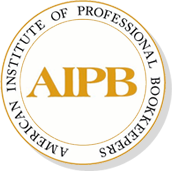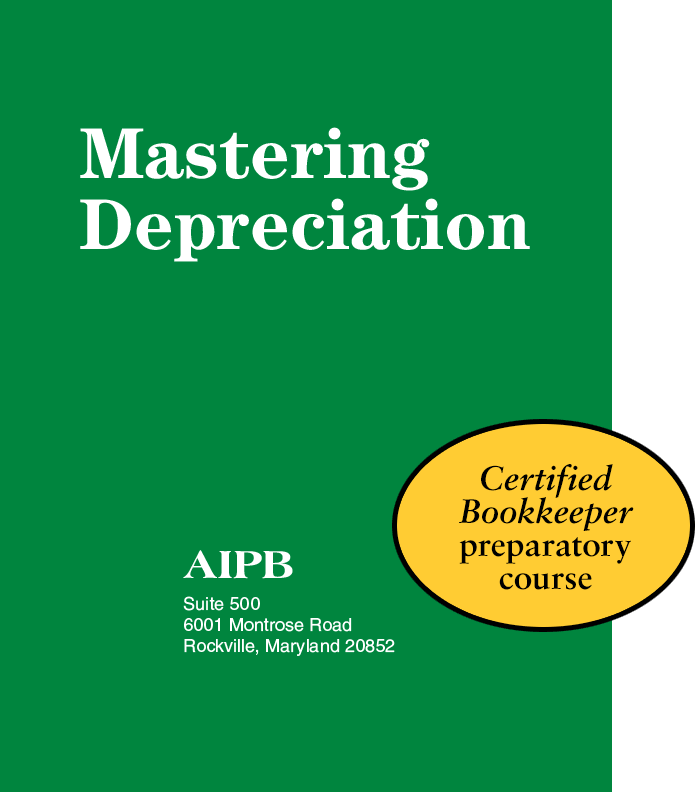204 pages [122 self-teaching + 82 self-quizzes with detailed answers]
Section 1: Depreciation for book v. tax purposes. Two ways to compute depreciation. Recording depreciation if the financial statements must undergo a compilation or review.
Section 2: Depreciation under GAAP (for book purposes). Determining the cost of an individual asset v. group of assets v. contributed assets under generally accepted accounting principles (GAAP). Determining the asset’s estimated life, residual value and book value. Journal entries for a manufacturing v. nonmanufacturing company. How depreciation appears on the financial statements.
Section 3: The straight-line method. How to compute, allocate and book straight-line depreciation. How to set up and maintain the depreciation schedule using this method.
Section 4: The units of production method. How to compute, allocate and book units of production depreciation. How to set up and maintain the depreciation schedule using this method.
Section 5: The declining balance method. How to compute, allocate and book declining balance depreciation. How to set up and maintain the depreciation schedule using this method.
Section 6: The sum-of-the-years’-digits method. How to compute, allocate and book sum-of-the-years’-digits depreciation. How to set up and maintain the depreciation schedule using this method.
Section 7: Depreciation for tax purposes. How to depreciate equipment and buildings under MACRS. How to apply the half-year convention . . . mid-quarter convention . . . mid-month convention. How to use IRS tables. Applying the Section 179 deduction. How to set up and maintain the tax depreciation schedule.
Section 8: Depreciating vehicles for tax purposes. Annual IRS limits for cars. How IRS limits apply to unmodified SUVs, pickups and vans weighing up to 6,000 lbs. Sec. 179 and depreciation if these vehicles are modified or weigh over 6,000 lbs. How to handle employee personal use of company vehicles in a sole proprietorship, S corp, C corp or partnership. How to set up and maintain the tax depreciation schedule.
Publisher: AIPB


This was a great learning tool. Great explainations and quizes to test what was learned.
This course has been a great asset to my knowledge in my current position as Office Manager/CFO. Not only with the schedules tracking our company’s assets but with cost reporting also.
The Material is practical and you can dominate the subject very fast
The explanations were very good.
Simple and Great
showed the calculations easier.
Really great course. I thought it was challenging, current and understandable. I enjoyed the process and had a quick turnaround with my exam results. I am disappointed, however, that any certification I receive through this process is not recognized or allowed in the State of Idaho. I would like to see a states level certification similar to the federal level certification for tax preparers. Other than that, great program
Ready to expand your knowledge? This is for you.
ok.
ok
My reference tool
Mastering depreciation is quite interesting and covers wide range of depreciation topics.
Marterial came in handy and was helpful while studying for my Enrolled Agent Exam.
Makes depreciation make sense!
Learned a few new things that I did not know.
Learned a few new things that I did not know.
It was great.
It was great.
It is well organized to understand the concept of depreciation.
Is a complete course. Good explanations, clear examples in other words is awesome.
I’ve enjoyed all of the courses that I have taken. Have not have time to complete them all yet.
I was able to pass the CB exam with this workbook.
I liked the course because it is very technical and practical.
I learned alot from the book which made it easier to take the exam.
I found this course very confusing.
I am having troubles with depreciation. I have taken the test twice and am missing the passing grade by just a few questions. The problem is, I really thought when I clicked finished at the testing center that I had 100%, so I am frustrated that I don’t know what I am not understanding in this course
I am getting ready it has been a good book to help me prepare for the exam
helpfull examples
Haven’t finished this one yet, I’m stuck on the tax depreciation and I work for a CPA, would of been better if the book wasn’t for 2008 tax rules.
Hadn’t done much with depreciation before, so good to have this book as a resource